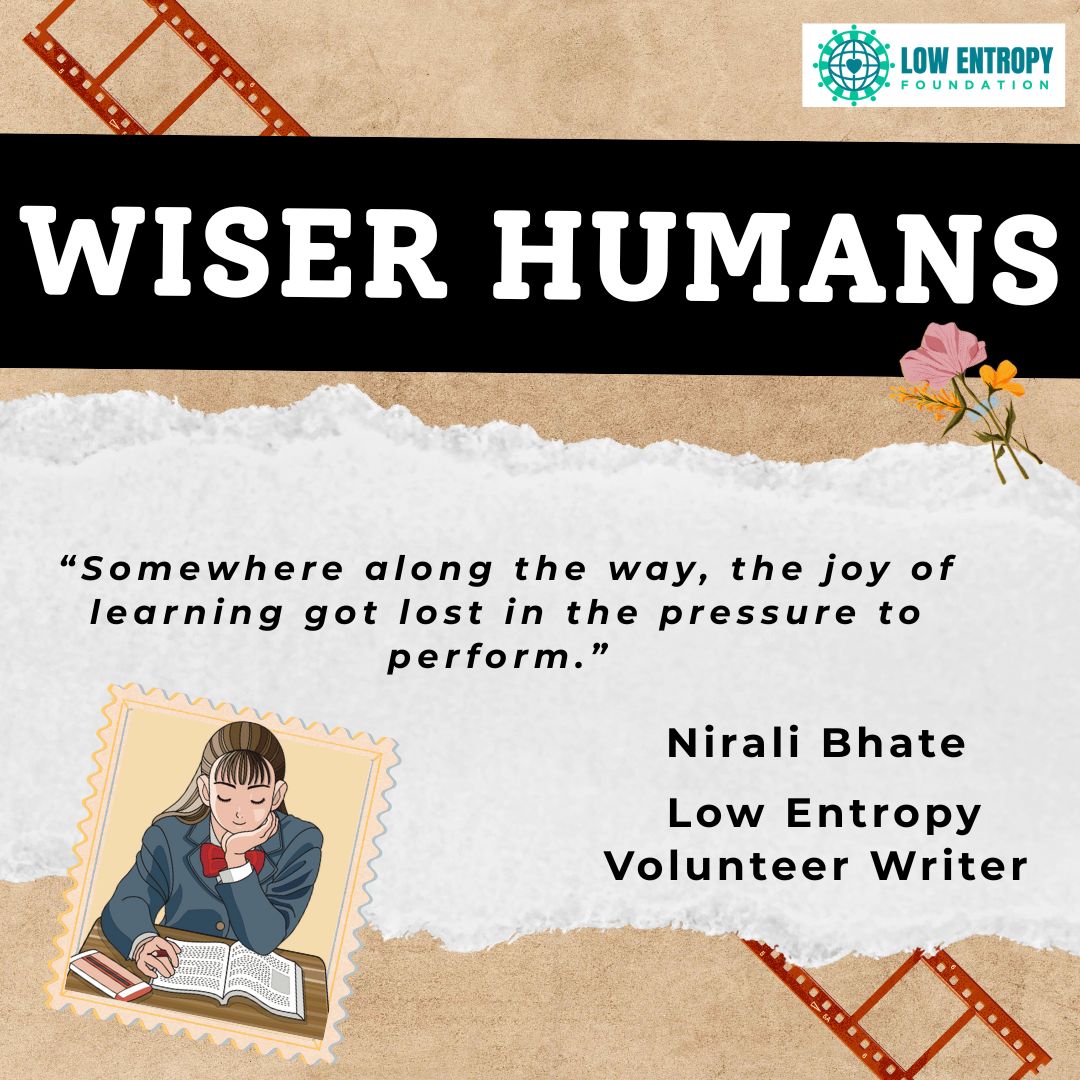Nirali Bhate, Low Entropy Volunteer Writer
When I look back at my school days, I sometimes wonder, did I really learn anything, or did I just memorize what I needed to pass?
If I’m being honest, it often felt like a race: a race to remember everything the night before the exam, write it down word-for-word and then move on to the next chapter, the next grade, the next test. Somewhere along the way, the joy of learning got lost in the pressure to perform.
The Pressure We All Felt
Many of us grew up in systems where grades meant everything. Good marks brought praise, bad marks brought questions. Teachers, parents and even friends would unintentionally measure our worth by our report cards.
So we learned early on that remembering information, not understanding it, was the safest way to succeed. We didn’t ask “Why?” We asked, “Will this be on the test?”
It’s sad, but it’s true: curiosity slowly faded as the system rewarded repetition.
Memorizing is Easy, Learning Is Messy
Memorizing is neat. It’s predictable. You can memorize a definition and be done.
But learning? Learning is messy. It makes you question, struggle and sometimes fail. It takes time, something exams don’t always allow.
The problem is, our education systems often prefer the neatness of memorization over the depth of real learning. We train students to reproduce knowledge instead of discovering it.
The Reality Hits Later
It’s only when we step out into the real world that we realize how unprepared we are.
No one asks you to list the causes of the French Revolution or solve a math problem on paper. Life asks you to think, adapt, communicate and understand people, skills that don’t always come from memorizing textbooks.
We realize that remembering isn’t enough. Understanding is what truly helps us move forward.
Learning Should Feel Alive
Learning should feel like discovery; like those “Aha!” moments when things finally click.
It should be about connecting ideas, not collecting grades.
It should make us curious, not anxious.
And yet, so many classrooms today still focus on results over reflection. Students sit through lessons they can’t relate to, answering questions they don’t feel connected with. It’s no wonder that passion fades.
But when a teacher brings in a real story, relates a concept to daily life or encourages discussion instead of dictation, that’s when real learning happens. It sticks, not because we have to remember it, but because it means something.
What Needs to Change
Maybe it’s time to let go of the idea that a number or grade defines intelligence.
Maybe we need to celebrate curiosity more than correctness.
Maybe we should let children explore, ask questions and even make mistakes, because that’s where true growth begins.
We don’t need education that fills minds; we need education that lights them up.
Final Thoughts
We’ve all memorized our way through parts of life. But true learning is what shapes who we are. It makes us thinkers, not followers. It helps us connect dots, not just recall them.
If education can shift from memorizing to understanding, we won’t just build smarter students, we’ll build wiser humans.
And maybe that’s what education was meant to do all along.
—
Leave your thoughts for Nirali in the comments below. You can also follow us on Facebook, Instagram, TikTok, Twitter and YouTube to stay up-to-date with Low Entropy news!

